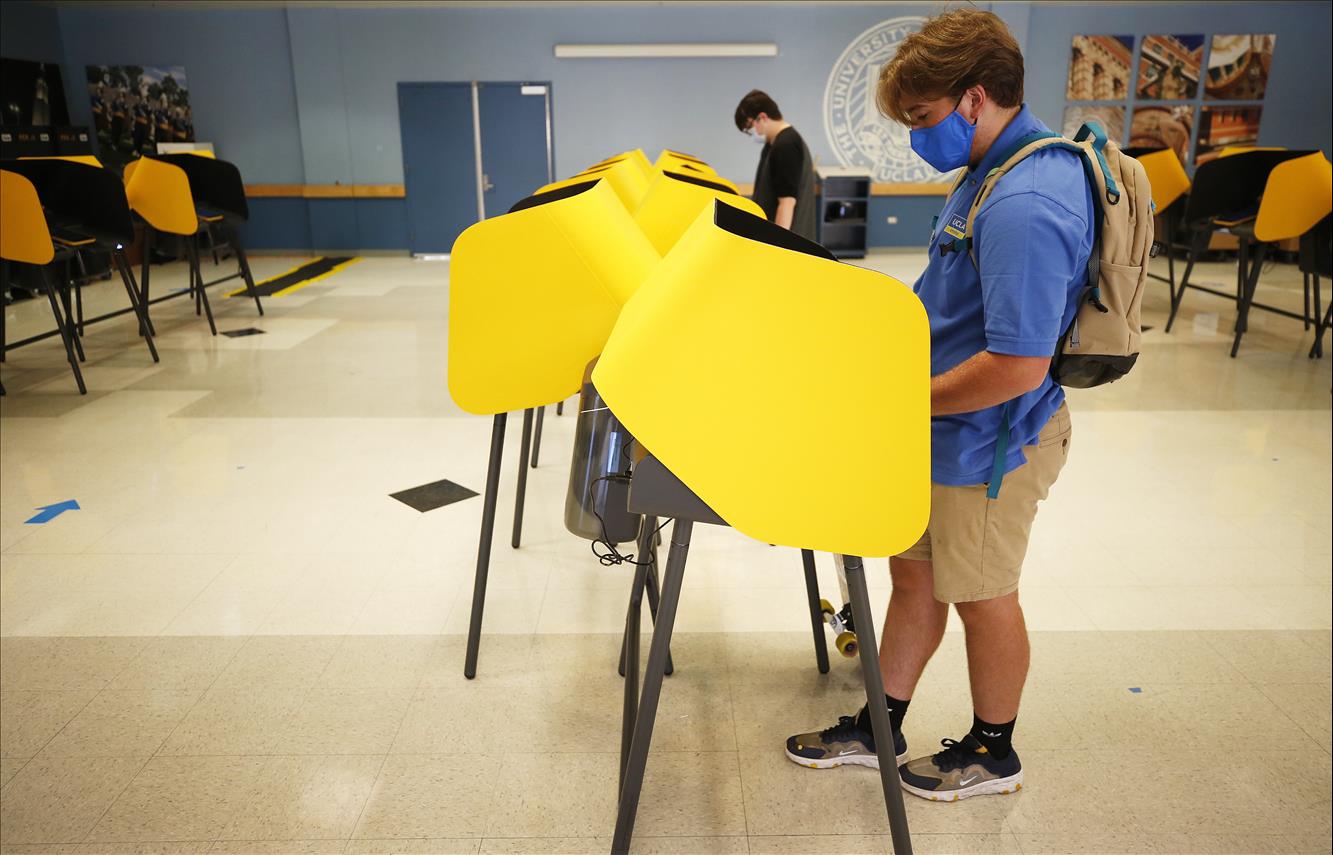
Studying political science motivates college students to register and vote new research shows
(MENAFN- The Conversation) The Research Brief is a short take about interesting academic work.
The big ideaCommunity college students who take Political science classes are more likely to register to vote, turn out to vote and understand constitutional checks and balances. That's according to our study of more than 2,000 students at nine community colleges.
After taking students' prior civic engagement and other college experiences into account, we found that students who took at least one political science course were 9% more likely to register to vote than those who did not.
Additionally, we found that students who took at least one political science class were 8% more likely to vote.
Improving college student voter turnout is a national issue. After the 2008 presidential election, many states began to adopt restrictive voting laws that depressed turnout , notably among Hispanic college students in the 2016 presidential election .
Finally, we concluded that at least one political science course helped students better understand constitutional checks and balances. Students who had taken political science were 9% more likely to understand that the Supreme Court – and not the president – determines whether laws are constitutional. They were also 17% more likely to understand how Congress can override a presidential veto.
Why it mattersRecent events, including two sets of impeachment proceedings against former President Donald Trump, illustrate the importance of understanding constitutional principles. Around the time of the first impeachment of Trump, almost half of adults in the United States did not know impeachment proceedings originate in the House of Representatives.
According to data from the National Study of Learning, Voting, and Engagement, about 1 in 4 students – including at both two- and four-year colleges – were not registered to vote in the 2016 or 2018 elections.
In a high-turnout year like the 2016 presidential election, about half of college students did not vote. In a lower-turnout year such as the 2018 midterm election, about 6 in 10 students did not vote. (Data on college student voter turnout during the 2020 election is not yet available.)
Voter turnout matters in close elections, and college students represent sizable percentages of eligible voters across the 50 states, ranging from as low as 3.6% in Alaska to as high as 10.2% in Utah .
What still isn't knownWe believe it is important to emphasize that our findings were not focusing on college students who majored in political science. We also could not examine the content of their courses or their grades. Finally, we relied on self-reported data, so there is no practical way to confirm that they registered to vote or turned out to vote. However, we do know whether they correctly answered questions about constitutional checks and balances.
What's nextIn ongoing research, we are focusing on the ways that co-curricular experiences, such as belonging to campus organizations or holding a position of leadership in a student organization, relate to civic engagement. We hope to offer implications for ways that multiple departments on college and university campuses can take a holistic approach to supporting civic engagement.
This line of research is relevant for colleges and universities that have mission statements that include teaching students to be civically engaged. Historically , American schools, colleges and universities have been expected to support civic education. We hope our findings and future research will offer information that faculty and administrators can use to develop curriculums and require courses that support civic engagement.

Legal Disclaimer:
MENAFN provides the information “as is” without warranty of any kind. We do not accept any responsibility or liability for the accuracy, content, images, videos, licenses, completeness, legality, or reliability of the information contained in this article. If you have any complaints or copyright issues related to this article, kindly contact the provider above.
Most popular stories
Market Research

- Manuka Honey Market Report 2024, Industry Growth, Size, Share, Top Compan...
- Modular Kitchen Market 2024, Industry Growth, Share, Size, Key Players An...
- Acrylamide Production Cost Analysis Report: A Comprehensive Assessment Of...
- Fish Sauce Market 2024, Industry Trends, Growth, Demand And Analysis Repo...
- Australia Foreign Exchange Market Size, Growth, Industry Demand And Forec...
- Cold Pressed Oil Market Trends 2024, Leading Companies Share, Size And Fo...
- Pasta Sauce Market 2024, Industry Growth, Share, Size, Key Players Analys...





















Comments
No comment